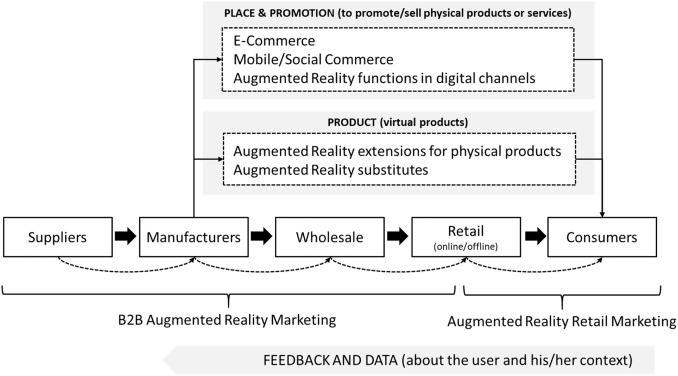Exploring Future Directions for SEL in Schools: Key Trends and Innovations Ahead
Introduction: The Growing Importance of SEL in Schools
As education evolves to meet the needs of a rapidly changing world, Social and emotional Learning (SEL) is emerging as a cornerstone of modern classrooms. Integrating SEL in schools prepares students to navigate academic challenges, interpersonal relationships, and lifelong personal development. But what does the future hold for SEL? In this article, we’ll explore future directions for SEL in schools, uncovering key trends, innovative approaches, and practical strategies that are shaping the next decade of education.
What is SEL and Why Does It Matter?
SEL—Social and Emotional Learning—comprises the processes through which students develop essential skills for emotional intelligence, empathy, effective communication, and responsible decision-making.Research consistently links high-quality SEL programs to improved academic achievement, better mental health outcomes, and a positive school climate.
- Self-awareness
- Self-management
- Social awareness
- Relationship skills
- Responsible decision-making
Key Trends Driving the Future of SEL in Schools
The future of Social and Emotional Learning is being shaped by several pivotal trends and innovations. Understanding these trends can help educators, administrators, and policymakers make informed decisions about integrating and advancing SEL in educational settings.
1. Technology-Enhanced SEL Solutions
EdTech for SEL is transforming classroom practices. From AI-powered mood trackers to interactive SEL apps, technology is making personalized, real-time learning possible. Platforms such as Second Step and Peekapak offer digital SEL curricula and activities that can be customized to students’ needs and progress.
- AI-based emotion recognition tools
- Digital storytelling and gamified SEL experiences
- Real-time feedback and progress monitoring
2. Whole-School and Community Approaches
SEL is moving beyond the classroom, embracing a whole-school model that involves staff, families, and communities. Future directions for SEL will see greater collaboration with parents, mental health professionals, and local organizations, ensuring consistent support for students both in and out of school.
- Family engagement initiatives for SEL continuity at home
- Community partnerships for service learning and SEL projects
- Professional development for teachers and staff in SEL practices
3. Culturally Responsive SEL
A major innovation in future SEL is the emphasis on equity and cultural responsiveness. Schools are adopting curricula that honor diverse backgrounds, identities, and experiences, ensuring that all students feel seen, valued, and supported.
- Integration of multicultural perspectives
- Trauma-informed SEL strategies
- Student voice and agency in SEL curriculum design
4. Data-Driven SEL Measurement
Advanced analytical tools now enable educators to measure the impact of SEL programs more effectively. Data-driven decision making—using both quantitative and qualitative data—will guide the ongoing enhancement and personalization of SEL instruction.
- SEL assessment dashboards and progress monitoring tools
- Regular student, staff, and parent feedback cycles
- Evidence-based refinement of SEL interventions
5. Integration with Academic Learning
Rather of being a standalone curriculum, future SEL is becoming deeply woven into academic subjects, bridging the gap between social-emotional growth and core content like literacy, math, and science.
- Project-based learning integrating SEL competencies
- Literature and social studies as vehicles for empathy and discussion
- collaboration, problem-solving, and conflict resolution across disciplines
Benefits of Adopting Future-Focused SEL Practices
Embracing innovative SEL approaches brings wide-ranging benefits for students, teachers, and schools:
- Improved Academic Outcomes: SEL skills boost focus, motivation, and engagement.
- Better Mental health: Prevents bullying, reduces anxiety, and builds resilience.
- Stronger School Community: Fosters trust, belonging, and positive relationships.
- Enhanced Life Skills: Equips students for future careers and complex life scenarios.
Case Study: SEL Innovation in Action
Roosevelt Elementary piloted an AI-driven SEL platform that monitors student emotions and offers personalized digital lessons.Teachers noted a 30% rise in class participation and a marked decrease in behavioral incidents after six months.
- Real-time mood check-ins via classroom tablets
- Gamified SEL exercises tailored to emotional states
- Weekly parent updates on student progress
According to Principal Sandra lee, “Technology empowered our students to express themselves safely and gave teachers powerful insights into their emotional wellbeing.”
Practical Tips for Implementing Next-gen SEL in Schools
Here are actionable steps for schools ready to embrace the future of SEL:
- Leverage Technology: Use digital SEL platforms that provide data and personalize learning.
- train Educators: Offer professional development in new SEL methodologies and tech tools.
- Foster Inclusivity: Choose SEL programs that are culturally sensitive and equity-focused.
- engage Families: Create channels for ongoing parent involvement and learning at home.
- Measure Impact: Routinely assess SEL effectiveness with thorough tools and feedback systems.
Firsthand Perspectives: Teacher and Student Insights
“When SEL was blended into our science projects, students opened up in ways I’d never seen before. It wasn’t just about learning the material—it was about truly understanding one another.” – Ms. J. Nguyen, 6th Grade Teacher
“Our digital check-ins help me tell my teacher how I really feel, even when it’s hard to say out loud.” – Arjun, 4th Grade Student
Looking Ahead: The Future of SEL in Schools
As we move forward, the future of Social and Emotional Learning in schools will depend on innovation, equity, and collaboration.By staying responsive to emerging trends and embracing new tools and practices,schools can transform SEL from an add-on to a foundational component of every child’s educational journey.
- Continuous research to inform best practices
- Cross-sector partnerships between education, health, and technology
- Student-led SEL initiatives for increased agency and engagement
Conclusion: Empowering Tomorrow’s Learners
Social and emotional Learning is no longer optional—it’s essential. By embracing the latest trends and innovations in SEL, schools can create dynamic, inclusive learning environments that prepare students to thrive academically, socially, and emotionally.As educators,policymakers,and community members,our collective commitment to the future of SEL will shape not only classrooms but the very fabric of society.

